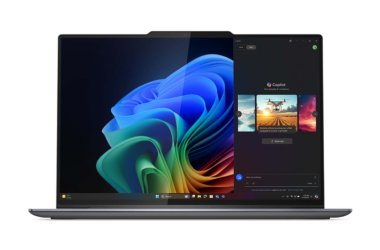 Intel will get a strong indication at next week’s Consumer Electronics Show whether its decision to bet heavily on ultrabooks is a good one — or not.
Intel will get a strong indication at next week’s Consumer Electronics Show whether its decision to bet heavily on ultrabooks is a good one — or not.
If users welcome the onslaught of ultrabooks slated for unveiling at CES, Intel would immediately jumpstart the flagging traditional PC business while making it far better armed in its battle against ARM, the top supplier of chips for the burgeoning small device market.
However, if the ultrabook phenomenon fizzles out, as some predict, it could indicate that the tech world has truly reached a post-PC era. In that case, Intel would be left fighting for a bigger piece of the burgeoning smartphone and tablet market.
“Intel has invested at least $300 million in the ultrabook effort, including technology development funds, joint marketing money and other things,” said Dan Olds, an analyst at Gabriel Consulting Group. “This is a big play for Intel, Microsoft and the rest of the PC-centric industry players. It needs to pay off.”
Backed by Intel, major PC makers like HP, Dell, Lenovo, Acer, Toshiba and Asus are poised to either unveil or show off their new ultrabooks at CES in Las Vegas this week. At this point, the ultrabook releases are poised to be the hottest thing at this year’s edition of CES.
If that holds true, it’s very good news for Intel, which coined — and trademarked — the term “ultrabook.” The trademark lays out stringent criteria that must be met before any thin, lightweight, high-end laptop can be called an ultrabook.
“This will likely be Intel’s second biggest bet for the first half of the whole decade,” said Rob Enderle, an analyst at the Enderle Group. “The biggest bet is with the Atom chips , which are targeted mostly at running tablets and smartphones. Of the two, it’s the [ultrabook] effort that remains the most at risk.”
But with big risk, Enderle emphasises, comes big potential rewards.
“It would be their most visible success and likely move their valuation significantly,” he added. “It would provide a very strong counterpoint to the argument that we are moving to a post-PC era, which would help the perception of Intel’s long-term prospects significantly.”
Olds pointed out that the wild popularity of smartphones and tablets, especially the Apple iPhone and iPad, enjoying wild popularity, Intel needs the laptop segment to get a solid boost via the ultrabook.
“This is an “Empire Strikes Back” initiative,” Enderle said. “The PC players in the industry, like Intel and Microsoft, see a lot of growth in tablets, iPads, and smartphones — which they see increasingly cutting into at least the low-end of the market. They need to do something to give the traditional PC platform a push and jumpstart growth — or at least blunt the impact of the competing devices.”
Carolina Milanesi, an analyst at Gartner, noted that an ultrabook success would help Intel better compete with ARM, whose chips are now most popular on smartphones and tablets. “It would buy them time as they make inroads in these two markets,” she added.
Analysts noted that as much as an ultrabook success would benefit Intel, a failure would put blunt its strategy.
“[A failure] would send Intel back to the drawing board to find a way to keep the x86 standard strong,” noted Olds. “They need to have a presence in mobile devices because they drive so much volume. If ultrabooks are unsuccessful, it’s not a death knell for Intel, but it just pushes them back a bit. Eventually, [though], it could cause serious problems.”
Patrick Moorhead, principal analyst at Moor Insights & Strategy, added a failure in ultrabooks would lead prices of Intel and platforms to erode while giving the company a hard public relations hit.
“I am skeptical that Intel will achieve its stated goal of 40% of all laptops sold as ultrabooks by the end of 2012,” said Moorhead. “There just isn’t enough time to reposition a Windows laptop to compete with the MacBook Air and too much cost to dramatically lower the price.”





